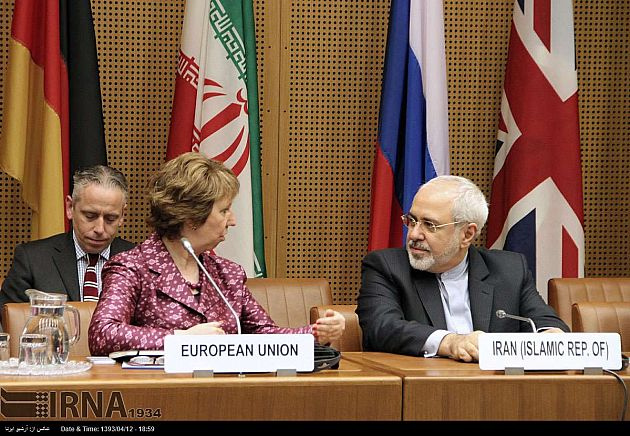Shadow of Mistrust over Nuclear Negotiations

A final agreement was not reached at the end of the six-month period and both sides agreed to extend these negotiations for another four months. What is the message behind this extension?
The most important reason behind the failure to reach a final agreement is the mistrust between the two sides. The other reason is that Iran’s nuclear issue has become more complicated. Nuclear negotiations have been going on for more than ten years now and today’s negotiations have inherited the policies and actions of the past ten years; whether it be the illegal sanctions imposed by the other side or Iran’s policies during the past years. Now, both parties are trying to untie the knots of the past ten years, thus, more time is needed. Although the Geneva Agreement prepared the ground, to some extent, for trust between the two sides, both parties still mistrust each other. On the other hand, Israel attempts to create obstacles by using its diplomatic and media apparatus. Israel does not want these negotiations to succeed. The measures taken by Israel are manifested in the reactions of the US Congress which exerts pressures on the Obama administration to raise its demands of Iran.
What are the elements which prevent reaching a comprehensive agreement?
One element is the lack of strong media diplomacy; hence, the media atmosphere must become more active. The other point is the issue of the resistance economy. This must not only be a slogan; actions must be pursued in this regard. The other party has reached the conclusion that sanctions could be used as a leverage of pressure against Iran, thus, they do not intend to lift the sanctions. On the basis of this wrong assumption, as long as these sanctions exist, Iran is forced to show flexibility in negotiations. This leverage must be taken from the other side. Therefore, we must take the issue of resistance economy seriously so that the US would comprehend that Iran is able to continue despite the sanctions. Of course, the impacts of sanctions on the economy of the country cannot be ignored.
What are the necessities of reaching an agreement and removing the obstacles?
The most important necessity is national unity. The other party must see that solidarity exists in Iran and nuclear policies are supported inside the country. On the other hand, the negotiating team must present new plans and programs. We must not allow these four months to pass and for the negotiations to be extended for another period of time during the final days, because the prolongation of negotiations would not be to the benefit of either side. That is why the expert groups must present new initiatives and plans. The foreign sector of the media must become more active so that the public opinion of the world become more aware of our policies.
Is it possible to reach a final agreement within four months?
Yes, it is possible. This possibility even existed during the last few days, but since there is this misconception that sanctions could be used as a leverage of pressure against Iran, bargain talks became more extended and the process of negotiations was prolonged. If Iran could remove this leverage of pressure from the other side, a final agreement would be reached sooner. Nevertheless, the atmosphere is fortunately moving forward and not backward.
Is it possible that both parties would back down from their positions due to the criticisms of radical groups?
That would be impossible. The criticisms expressed by radical groups are not very effective in Iran or in the US. Of course, these criticisms create a negative media atmosphere but they cannot impact the trend of negotiations.
Is it possible that both parties could back down from their positions?
There is this possibility but not because of the pressure of the domestic radical groups, but the other party may be forced to review its policies due to other reasons. For example, the US might reach the conclusion that sanctions do not have the necessary efficiency any more. Therefore, the Iranian party must do something so that the US would reach this conclusion. The US is pragmatic and has shown before that they do review their policies if needed. In order to do that, the US must feel that the conditions in Iran have changed; conditions which show that the sanctions are not effective and Iran has released itself from the pressure of sanctions.

